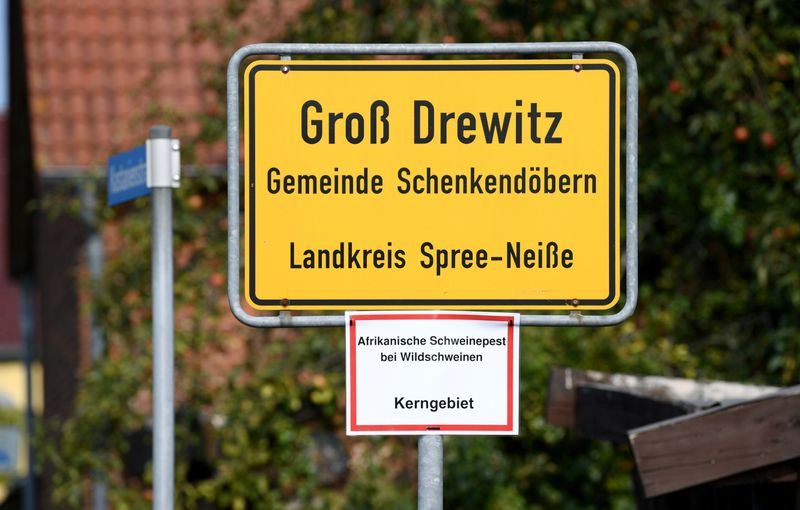HAMBURG (Reuters) – Another two cases of African swine fever (ASF) have been confirmed in wild boars in the eastern German state of Brandenburg, the state government said on Friday.
The new discoveries bring total confirmed cases to 34 since the first one on Sept. 10, all in wild animals, with no farm pigs affected.
All have been found in the region of the first discovery in the Brandenburg area.
Germany’s Friedrich-Loeffler scientific institute had confirmed the latest animals had ASF, the Brandenburg state government said.
China and a series of other pork buyers banned imports of German pork this month after the first case was confirmed, causing Chinese pork prices to surge.
The disease is not dangerous to humans but it is fatal to pigs and a massive outbreak in China, the world’s biggest pork producer, has led to hundreds of millions of pigs being culled.
The German government is considering aid to farmers after prices fell following the discovery of ASF in wild animals, federal agriculture minister Julia Kloeckner said on Friday.
The Brandenburg state government also said it was relaxing some harvesting and field world restrictions in the affected area, provided fields had been checked for dead wild boars.
This included harvesting sugar, potatoes and fruit along with sowing winter grains. Harvesting had been stopped because of fears wild boar hiding in fields would run away from farm vehicles and spread the disease faster.
(Reporting by Michael Hogan, editing by Louise Heavens and Mark Potter)


























